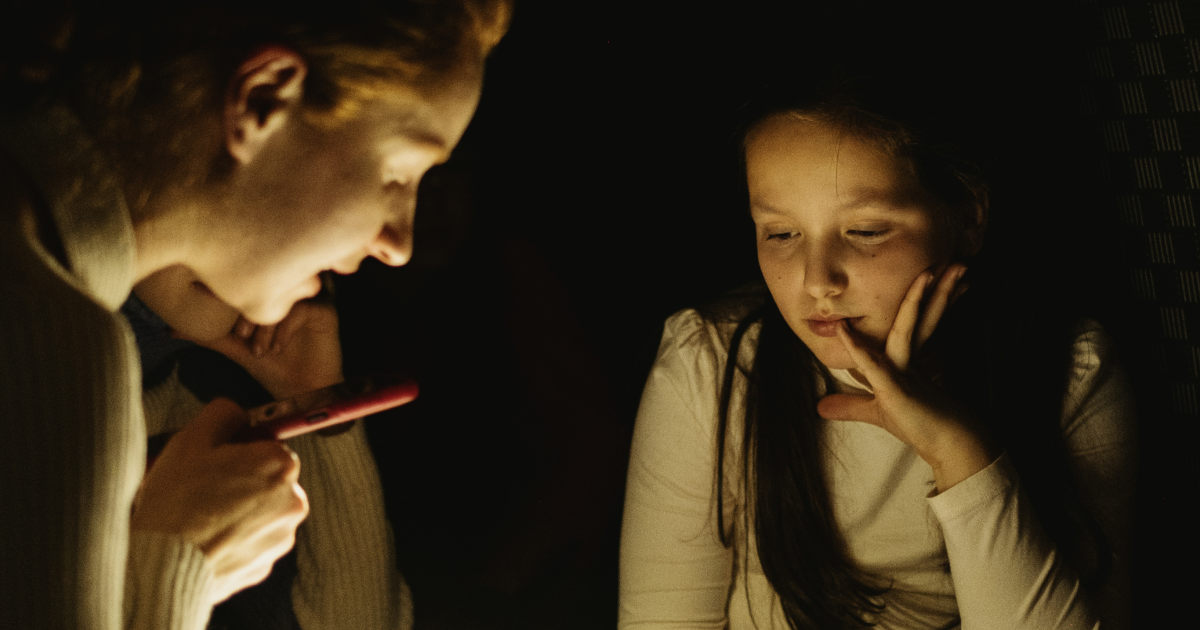Are our children maturing earlier because of the war? Psychologist Serhii Mykhailyk explains
Olha Myronenko
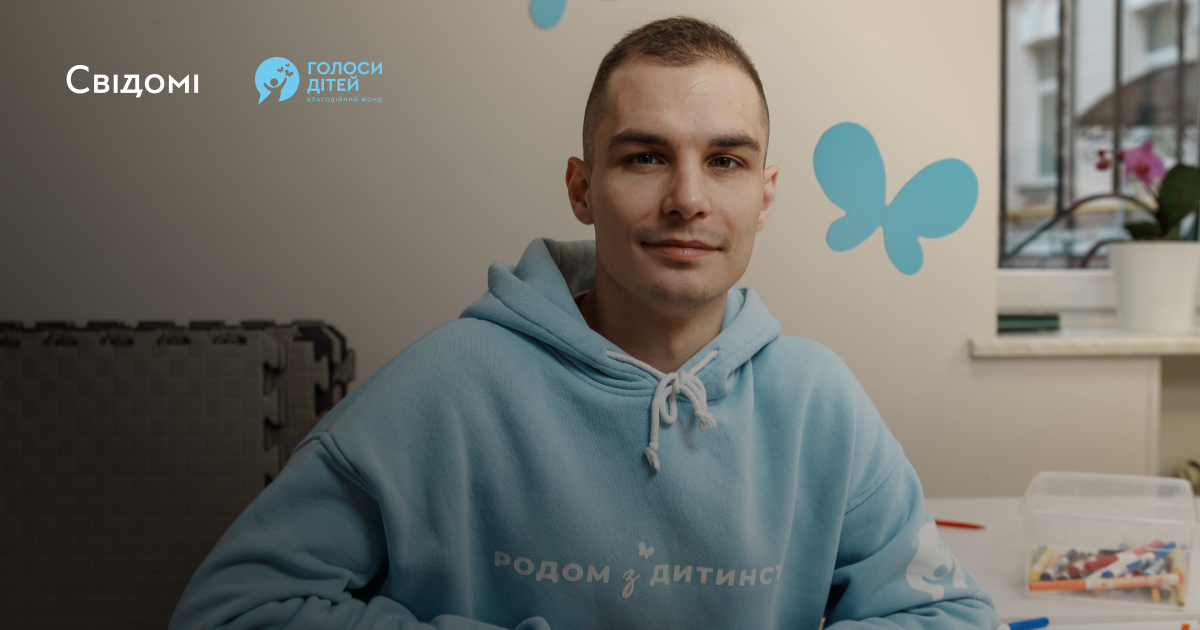
An 8-year-old boy who fled the war in Ukraine with his mother found himself in a foreign country. He had to learn a new language, find new ways to get to and from school, and cope with the daily stress of being away from home, where everything was foreign, and the letters and words were so strange.
His mother had to work to earn a living, so the schoolboy had to learn new skills: how to walk to and from school on his own (at home, his parents took him everywhere), how to buy food, how to cross the road, and even how to cook when his mother was ill.
Foreigners often admire him: "It's great that he's so independent at 9!", "Oh, he goes to the sports department by himself? Cool!", "Making an omelette? At such an early age!"
During the air raid, young girls and boys who stayed in Ukraine had to figure out how to behave in school and kindergarten, which rucksack to take, who to take by the hand when the class or group goes down to the shelter, and which song to sing to calm them down, and how to respond when a mother cries while reading the news or a message on her mobile phone…
Ukrainian children have faced challenges they have never experienced before. In society, this has been called a forced upbringing. Is this the case? And how does it affect children's mental health?
A member of the social campaign Hey, do you know what this is about? spoke to Serhii Mykhailyk, a crisis psychologist with the Voices of Children charity foundation.
— Are children maturing earlier today? What is meant by 'maturing' beyond their age?
— Psychological maturity includes emotional, physical, cognitive and social development.
When discussing children maturing due to war, we often cannot address full maturity in all areas because development does not occur in isolation. In these cases, more attention is typically paid to one area, resulting in the child developing specific skills more quickly, often at the expense of downtime or even a setback in other areas.
For example, a child may achieve a high level of cognitive development or social adjustment. If they need to ask other adults for help without relatives around, they might learn to cook, care for their siblings or parents, search for information online, or buy medicine, even if they have never done so before.
Sometimes, when the father is absent, the mother may unconsciously transfer his role to the minor son. While he may seem to accept this responsibility, he may struggle to fulfil these roles and duties. This can be detrimental. Although there may be some positive outcomes from taking on specific social roles, it is generally better for children not to be placed in such positions.
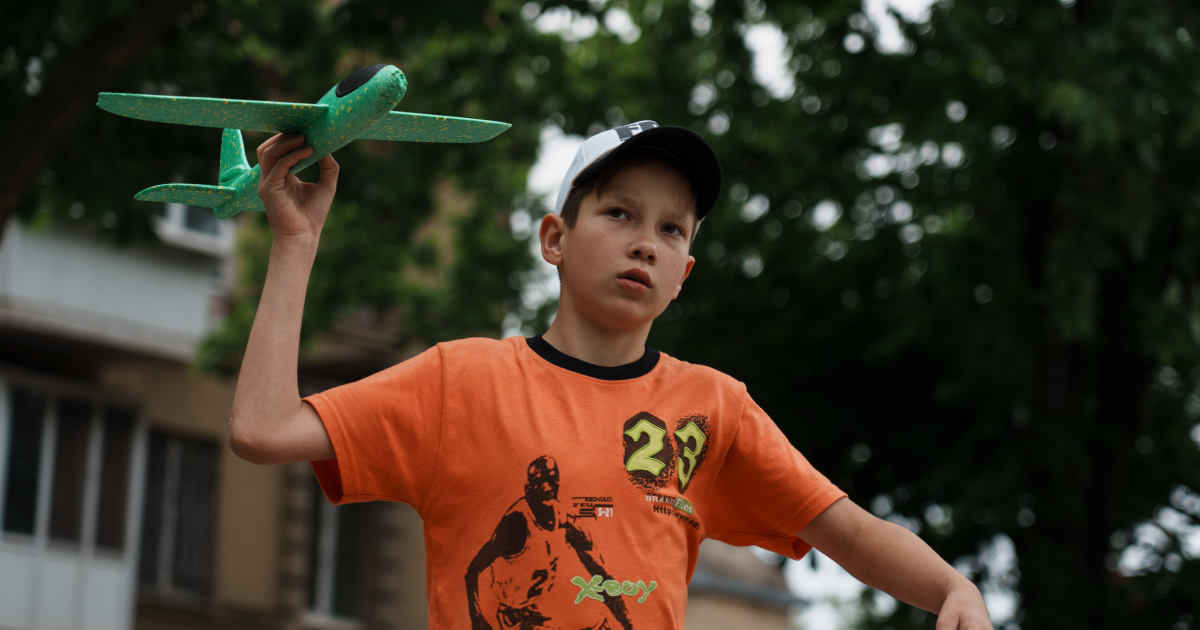
Occasionally, adults may go too far in their expectations. They might interpret certain adult-like behaviours in children and respond as if the child is fully mature. Children who fail to meet these heightened expectations may feel frustrated or inadequate.
A child who appears more mature due to certain experiences may lose their sense of emotional security and lack the support they would typically have. For instance, they might think, "I just have to do it; nobody cares how I feel. I'm scared."
Such distortions in development can lead to poor academic performance, as school may become less important in their current circumstances. Safety takes precedence, so the brain learns to prioritize getting to safety quickly or calming oneself and others. In this context, learning can wait. This is a common situation I often explain to parents, especially regarding displaced children.
— How exactly does forced maturation work? Do 8-year-olds become like 15-year-olds in some areas or in some other way?
— The situation varies for each child and family, influenced by the specific challenges faced and the presence and capability of supportive adults.
When children around the age of 8 take on roles typically reserved for older adolescents, they do not suddenly acquire the emotional and physical maturity of a 15-year-old. For instance, an 8-year-old may learn to care for younger siblings or perform household chores usually managed by teenagers. This shift is often a necessity driven by their circumstances, placing an undue burden on them.

However, this does not mean such children achieve emotional and physical maturity equivalent to that of teenagers. Social and moral maturity requires a holistic development that cannot be accelerated by challenging situations. For instance, war will not trigger earlier physical puberty or premature changes in primary teeth; biological development follows its own timeline. In most cases, this biological progression remains intact unless influenced by pathological conditions.
— When a child matures so much in terms of age, do they skip a few years or take a crash course?
— Neither. The analogy of school offers a useful framework for understanding child development in difficult circumstances. Just as a student might skip certain classes to graduate early, children may acquire skills typically associated with older age groups. For instance, a fifth grader might learn ethical principles usually taught in the ninth grade—gaining specific skills beyond their expected developmental stage.
When children learn skills that extend beyond their age, they may become more socially active and adept, as they must engage with others—be it through asking for help, navigating new environments, or interacting with older peers. Frequent school changes can enhance their communication skills, making initial interactions more effective.
Conversely, a child may become more reserved if they have endured negative experiences, such as bullying.
The acquisition of new skills can therefore lead to positive outcomes or accompany trauma.
For example, when a father passes away and an older boy assumes his role, he may begin caring for younger siblings, defending them from insults, or undertaking physical tasks his father used to do. However, these responsibilities can be heavy burdens, and the physical work may pose risks or be psychologically damaging. Furthermore, if he starts to adopt an authoritarian role with his siblings, treating them with undue harshness, this can have detrimental effects, as this behaviour is atypical for his age.
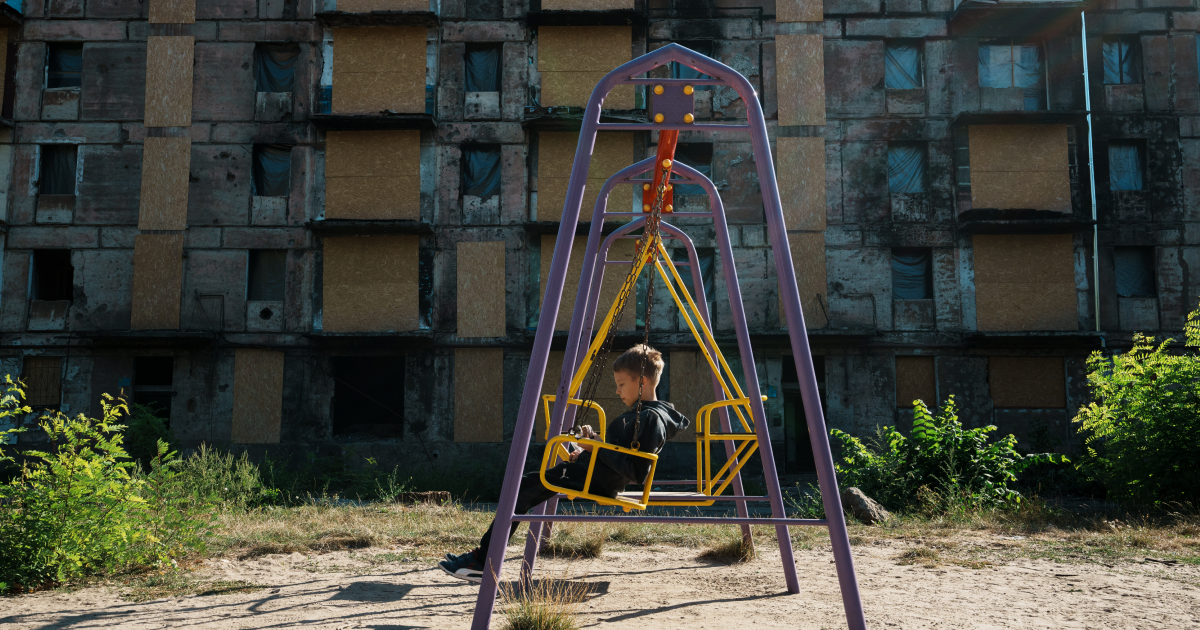
Growing up in such circumstances can feel like a precarious balancing act. If children struggle to manage these responsibilities, they may become withdrawn, insecure, and hesitant to embrace new challenges.
Moreover, if a child ambitiously attempts tasks traditionally handled by an adult—only to fail—this can lead to trauma. In the future, they may seek the protection of older individuals or mentors and develop a fear of making decisions. They might internalize their experiences, attributing failures to personal shortcomings, especially when faced with challenges that feel more formidable than their youthful capabilities.
— If a child gains nominal 'years' in one area, what in another? Losing or slowing down?
— If a child gains in one area, it does not mean they will lose in another. They can focus on the skills they need and improve them, such as communication. However, they may not pay enough attention to other essential things.
If the stress level the child can cope with is manageable, they will develop these skills.
It is only when the stress exceeds the child's abilities that they may regress due to psychological trauma.
The family generally helps such a child by accepting, supporting, listening, appreciating, and providing a sense of security. If there is a regression in skills, they will recover.

— Does a child beyond their years become more psychologically mature if someone talks to them about the war and tells them the truth?
— The question is, what is the truth? Is it the parents' point of view, or what they say on TV? You also have to understand your responsibility and how to give information in a way that the child understands and is not stressed.
It is better to soften the information according to the child's age. If we lie to a child about something or tell a lie to calm them down, we have to take responsibility for the fact that the child will learn the truth one day.
We should not expect appropriate reactions from a child forced to grow up in certain areas. Unfortunately, parents often have such high expectations. A child remains a child.
— At what age and how exactly should children learn about the war and events in Ukraine?
— From the age of 2-3, a child does not understand you very well because the crisis of three years of separation from you has not yet passed. The child is focused on meeting their basic needs. He or she can learn some things by repeating your behaviour patterns but is not yet independent.
After the crisis of three years, the child feels separated from the supporting adult.
What and how much to tell is a decision for each family; there is no universal recipe. The amount of stress a family wants to expose a child to depends on the family. If parents choose to give a minimum of information about the war and other traumatic factors, no one can blame them.
If the family decides to explain what has happened, here are some recommendations based on age. For children under 6, you should simplify the information as much as possible: use simple words and short sentences to ensure understanding. The cognitive abilities of children at this age need to be simplified. It is essential to reassure the child when discussing traumatic or stressful things.
We can't guarantee absolute safety, so it's about relative safety. Explain that as parents, you are doing your best and will do your best to protect your child wherever you can. The child can rely on you.
For young children, you can do this through fairy tales or toys. Tell stories where the characters go through similar situations so that they can relate to them. Cartoons, where the character is in danger but with a happy ending, also help. You can reassure children and teach them safety rules with a toy, "Look, this toy will always be with you. You can talk to it when you are scared."
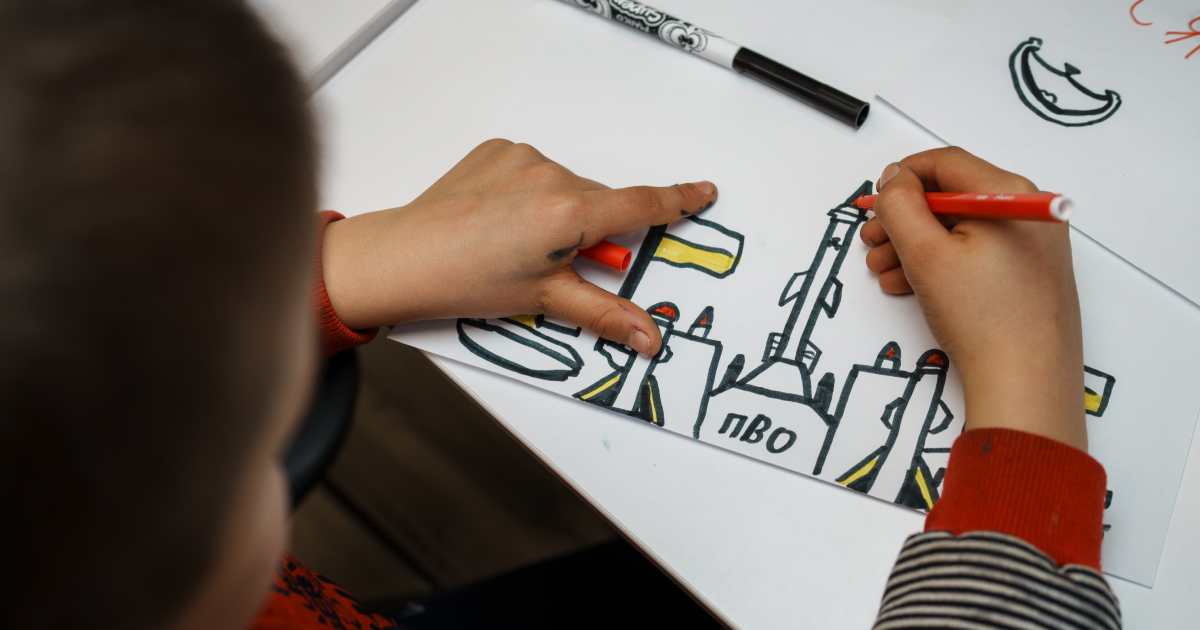
Tactile and emotional contact is also very important for preschool children. When a psychologist works with a child, we use some anti-stress techniques: breathing and muscle relaxation.
From the age of 6 to 9, you can talk openly without fairy tales or anything else. Do not overload them with information. Answer questions, be honest, but avoid details.
Children are developing the cognitive skills of adulthood that they really need at this age. They are learning to anticipate dangers, explain them to others, and see the relationship between cause and effect. What would not be necessary in a normal situation is necessary now. It is also worth focusing on safety and explaining that certain things are done for their safety.
A minister from Germany visited us once and attended a masterclass. She asked me why children hold hands and sing when they go down to the shelter.
I explained that it was mainly a distraction: a child must remember the words and who to hold hands with. We also explained the instructions about what to take, what to do in case of an air raid and other dangers. So, the children know that they are doing this for their own safety, and it is their responsibility.
At the age of 10-12, you can explain the context and give more information about the reasons for the war and the consequences for someone in particular or the country in the future. But also avoid details that might be traumatic.
At this age, the cognitive part of the psyche responsible for perception is developing rapidly. Older adolescents can be given more context and information and engage in dialogue.
It is worth teaching children to distinguish between reliable and unreliable sources of information and to involve a son or daughter in the discussion. Parents often neglect this when they are too tired and emotionally exhausted. I want parents to hear me on this point: you will need to invest more time and effort in filling these gaps in communication and education later on. Whenever possible, listen to your children and support their activities, for example, if they want to participate in charity events or other forms of help.
